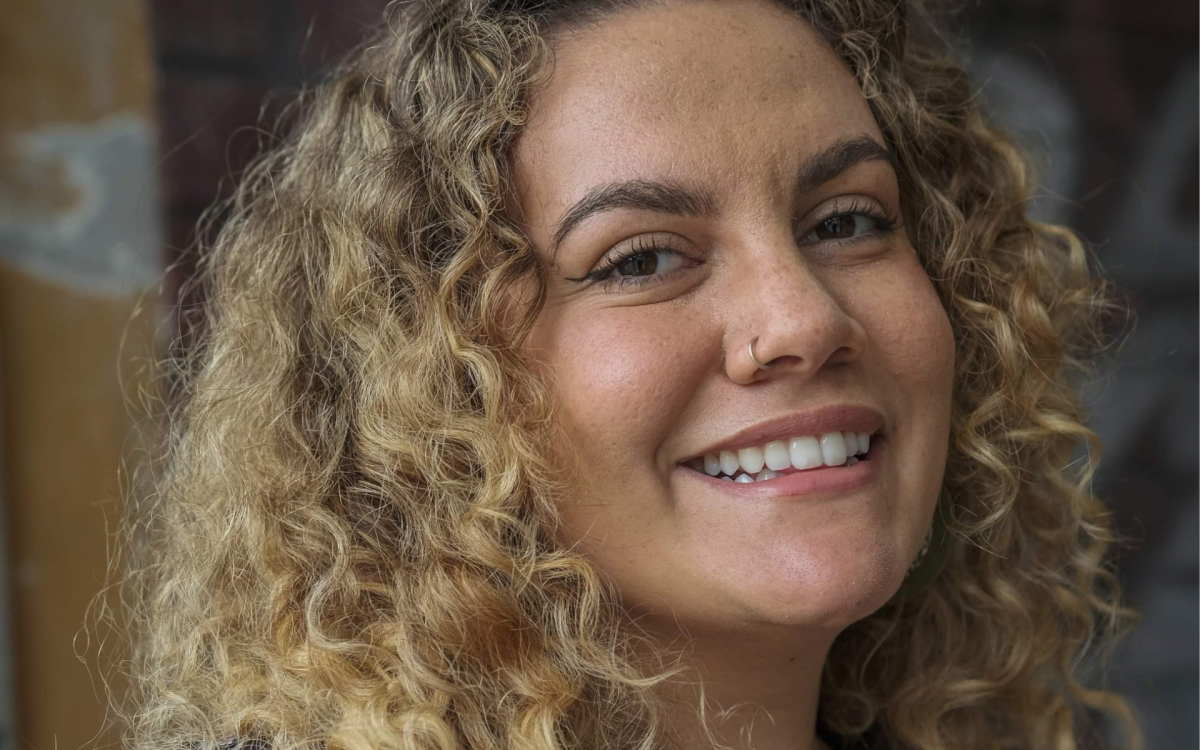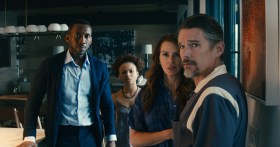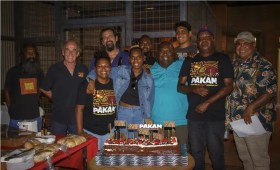‘I had always had a dream of working in the screen industry; it was something I always wanted to do, but because I grew up in regional Queensland in a small town called Cloncurry and later in Townsville, I just didn’t think it was something that was ever within my grasp,’ says Nicole Hutton-Lewis, a recent graduate of the Australian Film Television and Radio School (AFTRS).
A proud Garawa woman, emerging screenwriter and Australian Directors Guild Award-winning director, Hutton-Lewis cut her teeth as a filmmaker by working as an activist and content creator on a grassroots social justice campaign.
‘I had worked with mob in the Northern Territory, recording stories from Traditional Owners who were standing up against fracking. And, after recording all that, I was like, “Oh wow, actually, storytelling is the part [of filmmaking] that I’m most interested in and, if I’m already doing it, maybe working in the screen industry is feasible after all,’ she explains.
Like many people in 2020, Hutton-Lewis used what’s been called “the Great Pause” to reassess her life.
‘I [thought], “If I’m going to do this, if I’m going to do storytelling, I’m going to do it at the best school that I can possibly go to in the country.” Google told me that was AFTRS and I [thought], “Well, I guess I’m moving to Sydney”,’ she laughs.
Moving to Sydney from Queensland was ‘kind of scary’ at first, but also extremely exciting, Hutton-Lewis tells ArtsHub.
‘I knew that this opportunity was more important than my everyday fears, and so I went into it with hope and trust that I would be protected,’ she says, adding that the staff at AFTRS definitely helped ease any concerns she had about making the move.
‘It was really helpful to know that I wasn’t moving to a big city where no one actually expects me. AFTRS definitely knew I was coming and reached out to me about it, which was really helpful,’ Hutton-Lewis says.
Discovering that so many of her fellow students had also relocated to Sydney from across Australia also helped, she adds.
‘Most of my cohort was made up of people who had moved interstate, and so we kind of created our own family group, a friendship group of people who looked out for each other and were able to give each other support, love and help when we needed it the most.’
Blending theory with practice and creating multi-skilled content creators who can happily work across multiple roles and platforms, the Bachelor of Arts Screen: Production course introduced Hutton-Lewis to a student cohort who are now close friends and colleagues. It also significantly expanded her existing skill set.
‘In the [Bachelor of Arts Screen: Production], you get a touch on everything, the whole breadth of the roles that make up a film crew, which is really helpful for an emerging director like me,’ she tells ArtsHub.
‘You get experience working with every single crew role and working in every crew role, which means that you can approach projects with empathy and care knowing what those roles need from you, and also what I need to receive from those roles.’
Perhaps most importantly for Hutton-Lewis personally, AFTRS (which also offers some courses online) also provided her with the skills she needed to tell the sorts of stories she loves.
‘Now I have the opportunity to tell stories from my mob and my family – stories I never really got to see growing up,’ she says passionately.
‘I really want to tell stories that can make an impact. I love narrative, and often I feel like narrative can be overlooked in terms of creating social change. Usually when people think of that, they think of documentary. But I believe that you can tell narrative stories that can change people’s hearts and minds when those stories are [screened] in everyday Australians’ living rooms and they’re sitting and watching it together as a family.’
Learn more about AFTRS courses. Applications for 2025 open on 17 June.





